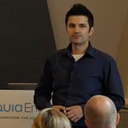Greg Satell, your insightful article on why bad ideas refuse to die resonates deeply, especially when considering the context of popular children's shows like "Paw Patrol." This series, while entertaining for young audiences, often perpetuates ideas that, upon closer inspection, reveal underlying issues that align with your thesis.
One scene that stands out is from the episode "Pups Save a Friend," where Marshall, one of the main pups, gets hurt and feels unwanted by his friends. This episode is particularly poignant because it highlights how easily bad ideas can take root in social networks. Marshall's feelings of rejection are exacerbated by the reactions of his friends, demonstrating how quickly a negative idea can spread and become entrenched within a group. This scenario mirrors real-world situations where a single misstep or misunderstanding can lead to long-lasting negative consequences, much like how bad ideas can persist due to their embedding in social networks.
Another plot that fits this theme is the recurring dynamic between Mayor Humdinger and the PAW Patrol team. Mayor Humdinger's antics, often driven by a desire for attention and validation, lead to chaotic situations that the PAW Patrol must resolve. This character's behavior is a prime example of how bad ideas can be reinforced by cultural and social norms. His childish and immature personality, as seen in episodes like "Pups Save the Hummy Gummies," where he builds a giant gummy statue to get attention, shows how certain behaviors are perpetuated because they are deeply ingrained in the character's psyche and the show's narrative. This mirrors the real-world phenomenon where bad ideas are sustained because they are embedded in cultural and social structures.
These examples illustrate how "Paw Patrol" inadvertently reinforces the persistence of bad ideas through its storytelling. The show's repetitive nature and the consistent portrayal of certain characters' behaviors make these ideas seem normal, much like how real-world bad ideas can become normalized over time.
As the PAW Patrol theme song so aptly puts it, "No job is too big, no pups are too small." Perhaps this mantra could be interpreted in a deeper sense: no idea is too insignificant to be challenged, and no change is too small to make a difference. The persistence of bad ideas can be combated by questioning and challenging them, just as the PAW Patrol challenges the status quo in Adventure Bay. In the words of a wise philosopher, "The unexamined life is not worth living," and it is through examination and challenge that we can ensure bad ideas do not refuse to die.
